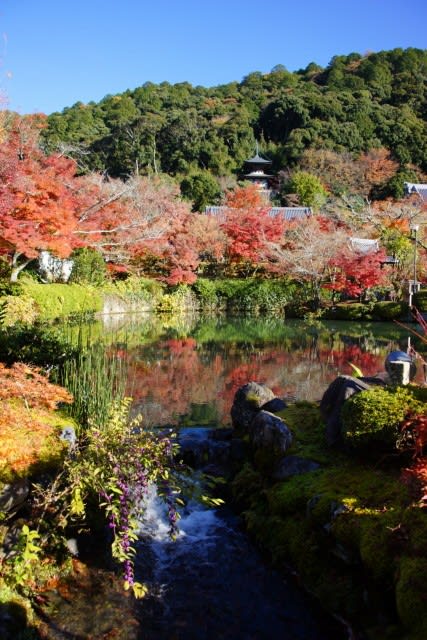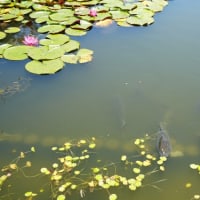The following is from Mr. Sekihei's serialized column that opens the monthly magazine Hanada, released on December 20.
The monthly magazine Hanada is full of genuine articles like this one, yet the price is 950 yen, including tax.
There is probably no other book in the world with better cost performance.
A must-read not only for the Japanese people but also for people worldwide!
The Korean Peninsula is the Perpetrator of History
In this series of articles titled "Know Yourself, Know Himself," I have consistently focused on China, but I would like to talk about the Korean Peninsula this time.
Because along with China, the peninsula is another troublesome "him" for Japan.
The two countries on the peninsula, especially South Korea, are always and everywhere playing the victim and demanding "apologies" and "compensation."
One former female president, who is now in jail in her own country, even declared that "the position of victims will remain unchanged for a thousand years.
They will continue to extort the Japanese people by pretending to be "victims" forever.
But have the people of the peninsula really been "victims of history" to any extent?
In fact, a closer look at the historical relationship between the Korean Peninsula and neighboring countries such as Japan and China reveals that the reality is quite different.
Throughout history, the countries of the Korean Peninsula have been the "perpetrators of history" and have caused a great deal of trouble to neighboring countries.
Let me give you an example.
During the Three Kingdoms period in Korean history (4th to 7th centuries), Goguryeo, Silla, and Baekje stood side by side on the peninsula, vying for supremacy.
Silla, the weakest in terms of economic and military power, sent envoys to the Tang Dynasty in China several times to beg the Chinese emperor to send troops to the peninsula to defeat Baekje.
The Tang Dynasty listened and sent a large army to the peninsula to work with the Silla Army to destroy Baekje in a pincer movement.
Nowadays, people on the peninsula often claim loudly that "we have always been invaded by neighboring countries throughout our history and suffered a great deal of damage," but this is nothing of the sort.
However, there is nothing to it.
The peninsular nations simply invited foreign troops into the peninsula of their own volition and let them "invade" the peninsula.
Some of the remnants raised soldiers to revive the country after Baekje was attacked and destroyed by the Silla-Tang Dynastic Union.
They sent an envoy to Japan, requesting the Yamato Court to dispatch troops to the Korean peninsula to help revive Baekje.
The Yamato Imperial Court listened to the request and sent troops to the peninsula.
They fought a fierce battle against the Chinese forces of the Tang Dynasty at Baekgang.
As we all know, the result was a disastrous defeat and almost destruction of the Japanese army.
As a result of being involved in the conflict on the peninsula by Baekje's remnants, Japan and the Japanese at the time were severely damaged.
There are other examples of how the Korean peninsula inflicted significant damage on Japan.
During the Kamakura period (1185-1333), the two Mongol raids, the Bun'ei and the Koan raids were consistently aided and abetted by the peninsular nation of Goryeo.
It is a historical fact that the first Mongol invasion, the Battle of Bunei, was led by the Yuan dynasty Emperor Kublai. Still, Goryeo, which became a vassal state of Mongolia, fully cooperated in the Mongol invasion of Japan by building battleships and procuring military supplies.
When it organized an expeditionary force of about 20,000 men against Japan, it added 5,000 Goryeo troops led by General Kim Bang-gyeong to the staff. It mobilized 15,000 Goryeo people to steer and sail the fleet.
The invading force against Japan was, in effect, a combined Mongol-Goryeo force.
When the conquest of Japan failed in the Battle of Bunei, Kublai was about to give up on the mastery of Japan.
At that time, however, it was the 25th king of the Goryeo Dynasty, King Chungryeol, who strongly pleaded with Kublai to resume the conquest of Japan.
It is a historical fact well documented in the "History of Goryeo, King Chungryeong's Family," a true history compiled during the Joseon Dynasty.
Kublai listened to King Chungryeol's plea, and the second war to conquer Japan (the Battle of Hongan) took place.
At that time, the Goryeo army played an essential role in the conquest of Japan, and King Chungryeol himself was appointed as the "Jungseo Sahjo" of the "Jungseo Ministry for the Conquest of Japan" (the headquarters of the Japanese expedition) to serve as the frontline commander of the invading army.
In other words, the Mongol invasion of the Koan era should be accurately called the "Goryeo-Mongolia invasion," and the King of Goryeo and the Goryeo army were the leading players in the invasion of Japan.
What did they do to the Japanese people?
Nichiren, who lived in the same era, wrote about the atrocities committed by the Goryeo-Mongolian allied forces in Tsushima.
"The invading army killed the men who were ordinary peasants. As for women, they pierced the palms of their hands and lined the walls of their ships with beads."
The above is the history of the Goryeo people on the peninsula who participated in and led the war of aggression on Japan and the history of the cruel slaughter of the Japanese people.
Can the people of the peninsula claim that they are the "victims of history" even in the face of such stark historical facts?
No, the fact is that they are not.
Throughout history, the countries of the Korean Peninsula have been involved in conflicts on the peninsula, inflicting damage on neighboring countries, including Japan. They have also been engaged in wars of aggression against Japan.
They are undoubtedly the perpetrators of history, and they should be the ones to apologize and pay compensation to Japan!
(For details, please refer to "The Korean People are the Perpetrators of History" by Sekihei [Asuka Shinsha].



















